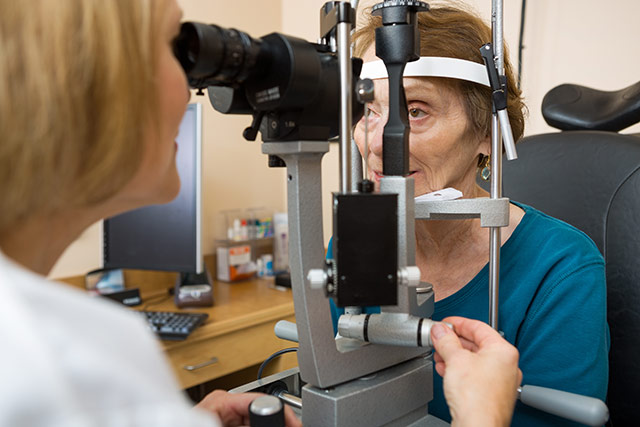Although cataract surgery is a relatively safe procedure, it is not 100% risk-free. In other words, complications can arise after cataract surgery that may result in either temporary or permanent vision problems.
Doctors can resolve most complications successfully, but a few cases may result in significant vision loss. This information is according to the American Optometric Association (AOA). Here is more information on this topic:
Potential Complications
A report published by the AOA states that people with pre-existing eye diseases have a higher risk of developing complications after surgery, compared to people without pre-existing conditions. This is especially true for people with macular degeneration or glaucoma. Examples of such complications include:
- Drooping eyelid
- Cornea swelling
- Bleeding in the eye
- Decreasing vision
- Discharge from eye that underwent surgery
- Fluid accumulation in the retina
- Eye inflammation
- Dislocation of implanted lens
- Light flashes or floaters in field of vision
- Eye pain
- Swelling around the eye
- Development of secondary cataract
- Glaucoma
It is especially worth noting that complications can occur regardless of the competence of a surgeon. An article published in the Community Eye Health Journal states that population-based surveys have shown that some cataract operations have poor outcomes (acuity of less than 6/60). The common causes of poor surgical outcomes include: failure to detect pre-existing conditions before surgery, complications during surgery, and inadequate or lack of post-operative refractive error correction.
According to data from the aforementioned Community Eye Health Journal article, less than 2% of cataract surgery patients in developed countries experience vitreous loss and capsular rupture. It is important to note that vitreous loss increases one’s risk of developing endophthalmitis. In developing countries like Kenya, Pakistan, and Bangladesh, the rate of poor outcomes is relatively higher at 25% mostly due to surgical complications.
Conclusion
Despite great advances in medical technology, complications do occur during and after cataract surgery. These include gradual vision loss, development of secondary cataract, eye discharge, dislocation of implanted lens, and cornea swelling. People who experience such complications should consult their surgeons immediately because corrective measures can lead to favorable visual acuity outcomes.





